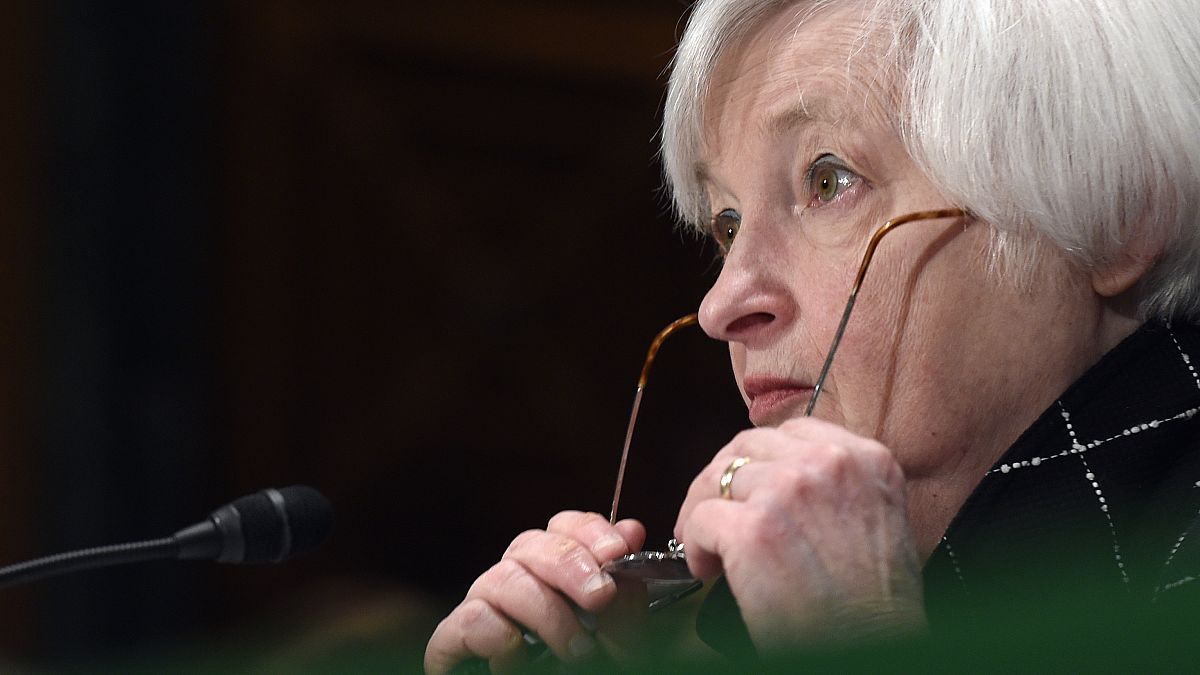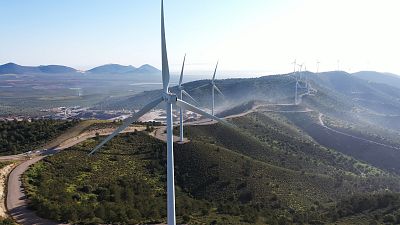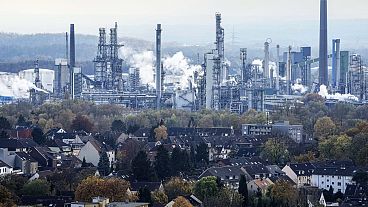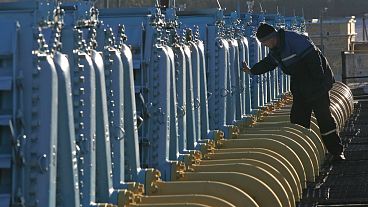"No country controls the wind and the sun. Let’s make sure that this is the last time that the global economy is held hostage to the hostile actions of those who produce fossil fuels."
Western countries must respond to the current energy crisis rocking the world and exacerbated by Russia's war in Ukraine by accelerating their transition toward carbon neutrality and "friend-shoring" their supply chains, top US and EU officials said on Tuesday.
US Treasury Secretary Janet Yellen opened the Brussels Economic Forum by arguing that the war -- which has resulted in spikes in energy prices and exposed Europe's dependence on Russian fossil fuels -- constitutes a "wake-up call to expedite the global transition to a more secure and cleaner energy future".
"No country controls the wind and the sun. Let’s make sure that this is the last time that the global economy is held hostage to the hostile actions of those who produce fossil fuels. This will happen again if we don’t change our approach," she added.
As a result of Russia's ongoing attack on its neighbour, the US, EU and UK have imposed multiple rounds of sanctions meant to weaken Moscow's ability to finance and wage its war. State companies, high-ranking officials as well as leading businessmen and oligarchs have been sanctioned while exports of key technology products to Russia have been barred.
In retaliation, Moscow has cut gas supplies to Poland and Bulgaria.
Click on the video player below to follow the Brussels Economic Forum.
Brussels also wants to ban Russian oil in the bloc and unveiled a planned phase-out nearly two weeks ago, but negotiations over the proposal are still ongoing as several member states, led by Hungary, have opposed such plans due to their high dependence on Russian energy imports.
"Russia's aggression against Ukraine is focusing the mind," Valdis Dombrovkis, the EU's Trade Commissioner, told the forum.
He added that the EU is "taking strategic decisions rapidly, phasing out our dependence on Russian fossil fuels" and that this means, in the short term, diversifying suppliers of fossil fuels, as well as an "acceleration of the green transition".
He stressed that the Commission's eagerly awaited RePower EU plan, to be unveiled on Wednesday, will provide details on how the 27-country bloc will carry out its transition and how it will finance it.
The EU has pledged to become the first carbon-neutral continent by 2050 and is targeting a 55% emission reduction target by 2030.
"If anything Russia's aggression is concentrating the minds and making sure that we need to move faster away from fossil fuels," he concluded.
Spain's minister for the ecological transition, Teresa Ribera, meanwhile flagged that Russia's invasion of Ukraine has also underlined the need for Europe and partners to build "healthy interdependence worldwide so that supply chains are not disrupted" as they decarbonise their economies.
"This implies also paying attention to the new materials we need in this new energy economy and the strategic autonomy we need to build in," she said.
This echoed comments made earlier by Yellen.
"I believe that we need to consider how to incentivise the “friend-shoring” of supply chains to a greater number of trusted countries for a variety of products, so we can continue to securely extend market access, with lower risks to our economy, as well as to those of our trade partners," she said.
Some new materials are crucial to the energy transition, including lithium. Europe, for instance, only has one functioning lithium mine and therefore imports nearly all of the lithium it needs to produce batteries that are needed for electric cars and electronics as well as to store energy from renewable sources.
China, however, has already heavily invested in rare earth materials such as lithium and now is a world leader in lithium refining and lithium-ion battery production.



